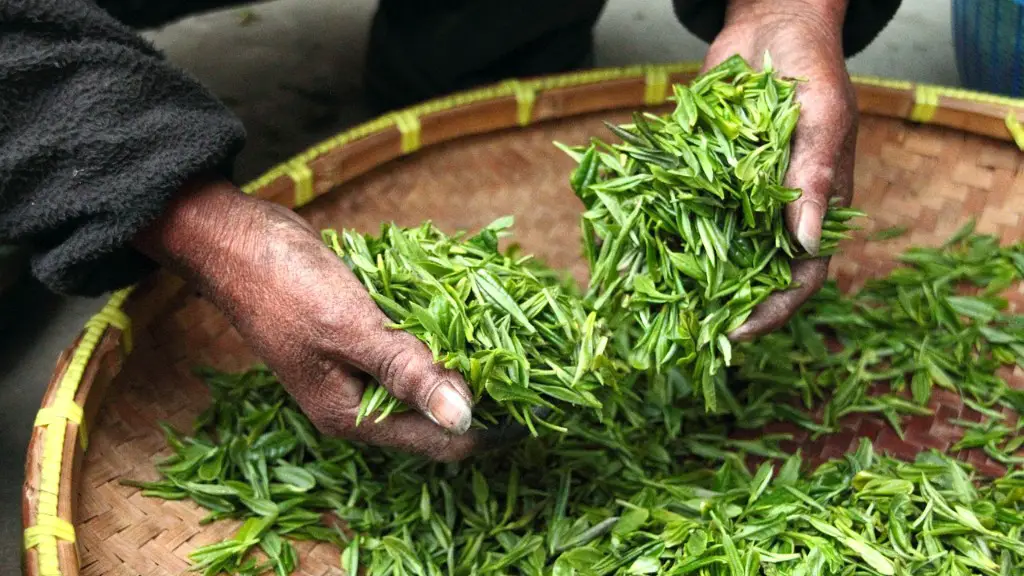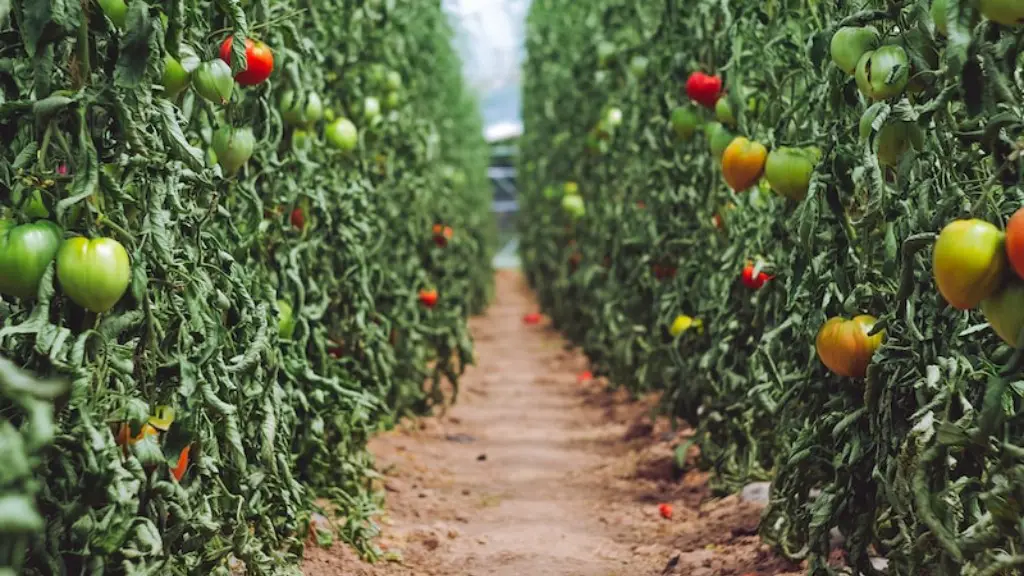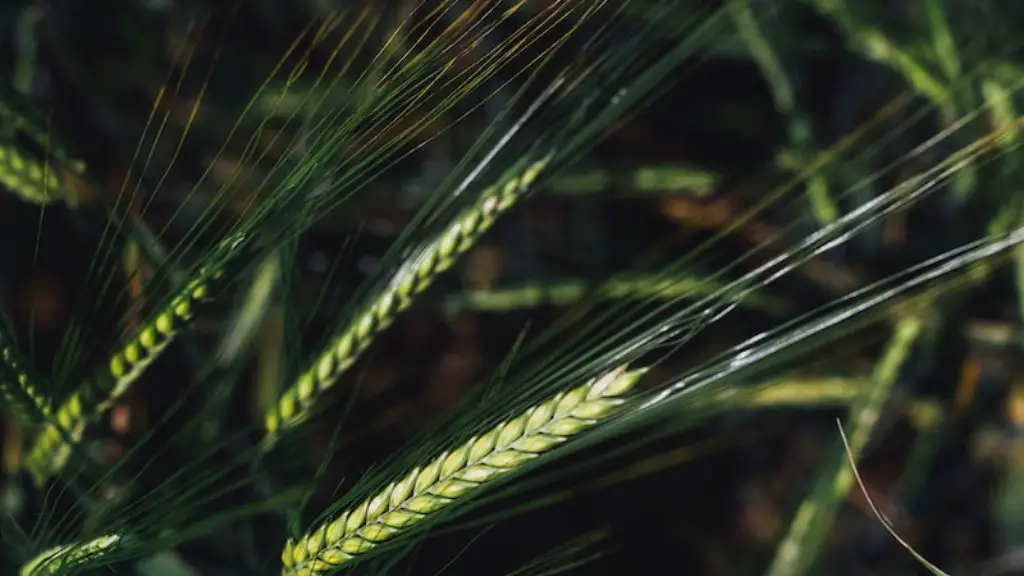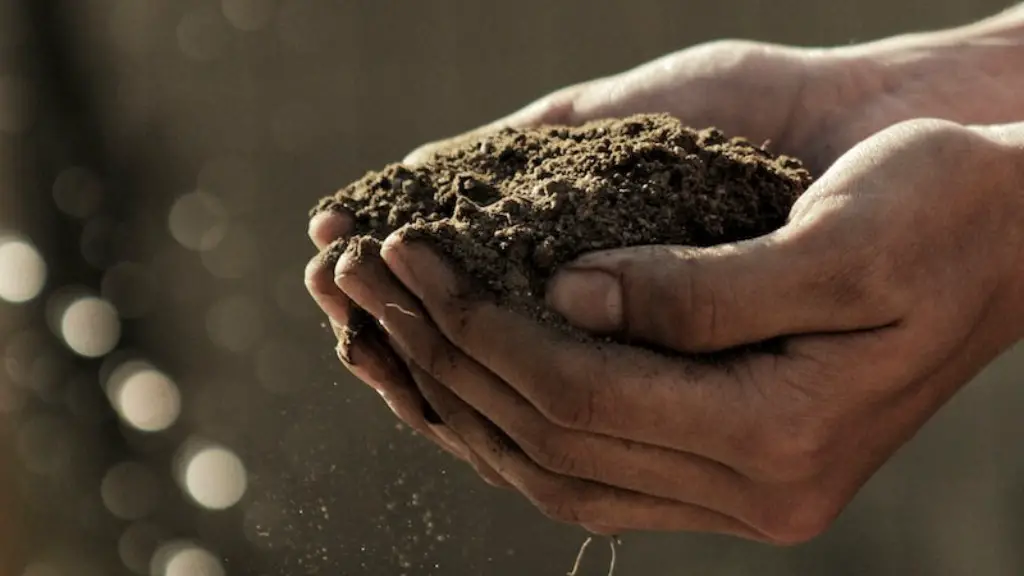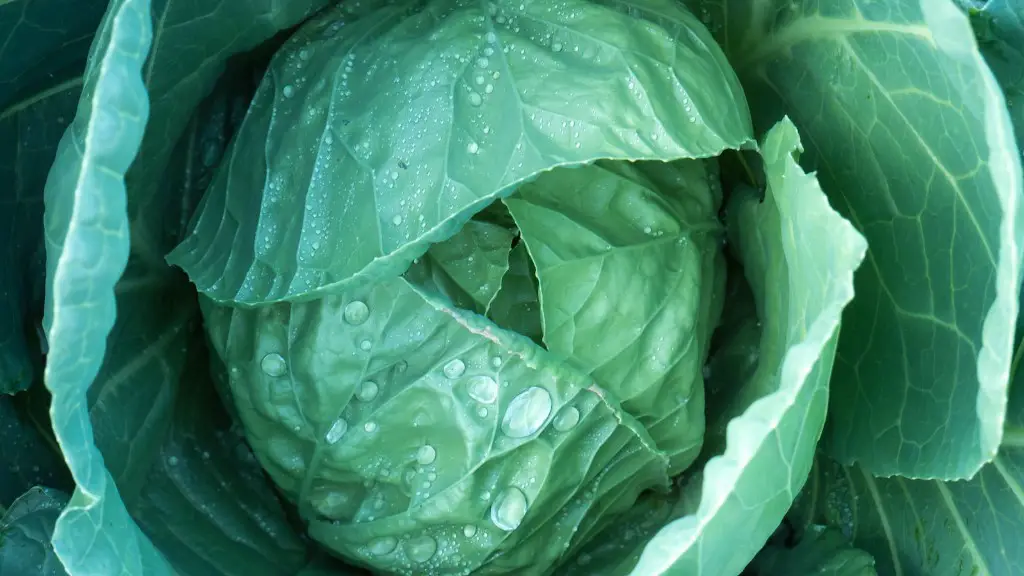Agriculture is a major contributor to the global environmental changes, with potential impacts on both biodiversity and the climate. While traditional agricultural practices have been in use for centuries, modern agricultural methods have come with a significant environmental cost. Industrialized agriculture is responsible for soil degradation, water pollution, chemical runoff, and other harmful impacts on the environment.
Industrialized agriculture has led to soil erosion by reducing natural vegetation, which was once effective at preventing the water washing soil away. Continuous harvesting and tilling of land can also cause soil to become degraded. As soil erodes, it may contain sediment and other pollutants, which can eventually end up in our water sources.
In addition, chemical runoff from farms can have a devastating impact on the environment. Harmful chemicals from fertilizer, pesticides and other agricultural products can accumulate in soil, leaching into waterways and eventually entering into larger sources, such as rivers and oceans. Such chemicals are a threat to aquatic life and can even cause birth defects in humans.
Agriculture is also responsible for the release of greenhouse gases into the atmosphere. Burning of fossil fuels for agricultural machinery and tilling of soil releases carbon dioxide into the atmosphere, while the production of synthetic fertilizers releases nitrous oxide. Both of these gases contribute to global warming, posing a significant threat to the environment and human health.
Agriculture is also responsible for the loss of biodiversity. As land is cleared for agricultural use, native plants and animals are often displaced. This can significantly reduce the region’s biodiversity, making it unable to support a wide variety of species.
Agriculture is essential for human health, but it must be done in a way that minimizes environmental damage. By utilizing sustainable agricultural practices, such as crop rotation and using organic fertilizers and pest control, farmers can help preserve the environment and reduce their impact on it.
Farmers must also take steps to increase the fertility of their soil. This can be done through the use of natural fertilizers, such as compost, as well as other sustainable practices, such as cover cropping and reduced tillage. This will help to prevent erosion and reduce the need for chemical fertilizers.
Impact on Water Quality
Agricultural activities, such as the use of chemical pesticides and fertilizers, can have an adverse effect on water quality. Runoff from farms can contain these pollutants, which can then leach into surface and groundwater sources, potentially causing contamination of drinking water supplies. Such pollutants can also harm aquatic ecosystems, killing fish and other wildlife.
In some cases, water quality can be impacted by the use of water for agricultural purposes. Diversion of water for various uses, such as irrigation, can reduce stream flow and deplete ground water sources, leading to drought and water shortages. This can have a significant effect on the local environment, as well as the human population that relies on the water supply.
To reduce environmental impacts, farmers must be mindful of their use of water. Strategies such as reducing irrigation or switching to drip irrigation can help to conserve water and maintain healthy water sources. Similarly, looking for ways to limit runoff by creating buffer areas between farm fields and surface water can help to reduce water pollution.
In addition to these strategies, farmers may want to consider ways to reduce their water use overall. This can mean switching to drought-tolerant crops, utilizing cover crops, and implementing other strategies that will result in reduced water needs for the farm.
Impact on Land Use and Deforestation
Agriculture can result in changes in the way land is used and managed, often leading to deforestation and ecosystems destruction. As agricultural needs grow, land is cleared for the purpose of planting crops or raising livestock. This can lead to the destruction of natural ecosystems and the displacement of native animal species. It can also lead to soil degradation and erosion as the land is cultivated.
In some cases, deforestation can also lead to climate change. Trees play an essential role in mitigating climate change, as they absorb carbon dioxide from the atmosphere and help stabilize temperatures. As trees are cleared away, the natural balance of the environment is disrupted and carbon dioxide levels can rise, leading to an increase in global temperatures.
A more sustainable approach to land use is key to reducing the environmental impact of agriculture. This can include reforestation efforts, utilizing natural vegetation conservation, and creating buffer zones between cultivated land and protected areas. These strategies can help to reduce the need for deforestation and allow land to be managed in a more sustainable way.
Farmers must also be mindful of their use of land for agricultural purposes. Rotating crops, using cover crops and adopting no-till practices can reduce the need for additional land, allowing farms to remain profitable while minimizing their environmental impacts.
Impact of Water Pollution
Farms can be a major source of water pollution, releasing harmful chemicals such as fertilizer, pesticides, and manure into surface and ground water sources. This can lead to contamination of drinking water supplies and can have a devastating effect on aquatic ecosystems. Pesticides, for example, can kill fish and other aquatic life or cause health problems in humans.
In addition, agricultural runoff can cause eutrophication, a process in which nutrients such as nitrogen and phosphorus accumulate in water, leading to algal blooms. These algal blooms can cause a decrease in oxygen levels and lead to the death of fish and other aquatic organisms.
To reduce the potential for water pollution, farmers must be mindful of their use of chemicals, such as fertilizer and pesticides. Reducing or eliminating their use whenever possible can help to reduce environmental impacts. Additionally, using non-chemical pest control techniques and using techniques to reduce runoff, such as installing buffer zones and terraces, are effective ways of preventing water pollutants from entering into water sources.
In addition, farmers should take steps to reduce their water consumption. Reducing irrigation and adopting other water-saving strategies, such as switching to drought-tolerant crops and using mulch or cover crops, can help to reduce agricultural water use.
Impact on Biodiversity
Agriculture can have a major impact on biodiversity, as land is cleared away to make room for the production of crops or the raising of livestock. This disruption of natural habitats can lead to the loss of native species and an increase in invasive species, both of which can have a devastating impact on the environment.
In addition, the use of chemical pesticides and synthetic fertilizers can also have a negative effect on biodiversity. These chemicals can harm beneficial insects and cause damage to other wildlife. Additionally, the runoff from these chemicals can have a negative impact on aquatic ecosystems, leading to a decrease in biodiversity.
To minimise the impacts of agriculture on biodiversity, farmers must be mindful of their land management practices. Utilizing natural vegetation conservation, crop rotation, and terracing can help to reduce the need for deforestation and the displacement of native species.
In addition, minimizing the use of chemical pesticides and fertilizers is essential. Switching to organic fertilizers, encouraging beneficial insects, and utilizing cover crops and buffer zones are effective strategies for reducing the potential for environmental damage and maintaining a healthy ecosystem.
Impact on Climate Change
Agriculture is a major contributor to climate change, as the burning of fossil fuels for agricultural machinery and the production of synthetic fertilizers and pesticides releases greenhouse gases into the atmosphere. This can lead to a warming of the planet and other climate effects, such as more extreme weather events.
To reduce their contribution to climate change, farmers must be mindful of their use of energy and resources. Utilizing renewable energy sources, such as solar or wind, for agricultural machinery can reduce the need for burning fossil fuels. In addition, adopting water-saving strategies and utilizing compost instead of synthetic fertilizers can help to reduce greenhouse gas emissions.
Farmers must also be aware of their land management practices and how they can impact the climate. Utilizing cover crops and no-till methods can help to reduce emissions, while better water management practices can also help to reduce climate change impacts.
Finally, farmers must also look for ways to increase the amount of carbon they store in their soil. Building soil organic matter, utilizing mulches, and planting trees can all help to increase soil carbon content and reduce greenhouse gas emissions.
